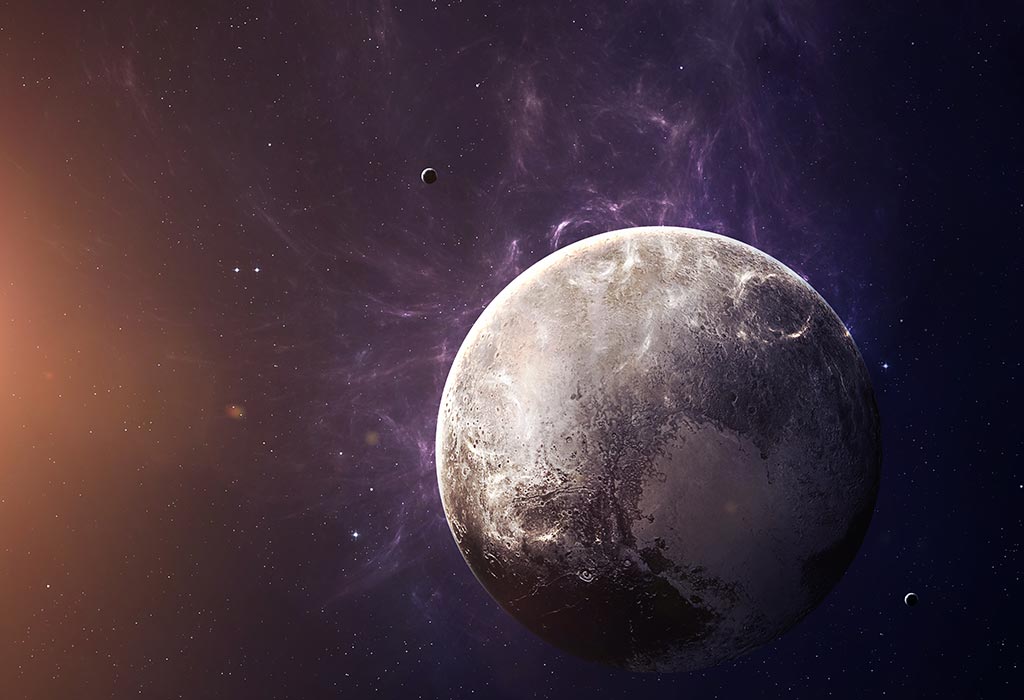Q1. Why Is Pluto No Longer A Planet?(History Of Pluto).
We know that there are 8 planets in our solar system, but before 2006, scientists believed that there were 9 planets in our solar system, including Pluto. Pluto was 9th planet of our solar system. But in 2008, the International Astronomical Union gave Pluto a Dwarf Planet status in its 26th General Assembly. But why, let's find out.
Voyager spacecrafts were launched in 1977, first Voyage 2 was launched then a few days later, voyager 1 and these were the first spacecrafts to explore gas giants, but we were not able to explore Pluto. In the year 1930, a American Astronomer named Clyde Tombaugh discovered Pluto, which was later declared the 9th planet. At that time many astronomers believed that Pluto would be bigger than the Mercury, but many scientists were not convinced. Other planets of solar system were very different from it. It was a small ice ball whose surface temperature is -225 degree C. Pluto's orbit is different from the rest of the planet. Almost all other planets whose orbit is circular are the same. Pluto's orbit is extremely elliptical. It orbits around the sun in a 17 degree angle and it takes about 248 Earth years to complete one orbit. But before the discovery of Pluto, the Astronomers took the picture of it, but at that time, they did not pay much attention to it. In 1840, the French mathematician Urbain Le Verrier did a Neptune prediction by his mathematical calculations. He saw that there was some effect in Uranus's orbit and in search of this, he discovered Neptune. But after the observation of Neptune, the astronomers noticed that in Uranus's orbit is not only disturbed by Neptune but also something was disturbing behind. What was that?, astronomers was now start searching it. After that, In 1906, American mathematician Percival Lovell started a project called "The Search of a Possible Ninth Planet". He named it Planet X. In 1915, this mission of Lowell was stopped due to some legal action, but in 1929 the project was started and this time Clyde Tombaugh was entrusted with the task of finding the Planet X. And then after a year of hard work, 18 February 1930 Tombaugh finally discovered Pluto and became the 9th Planet of the Solar System. But whatever calculation was made of Pluto's mass and size in the beginning proved to be wrong. At the start, our astronomers felt that the mass of Pluto would be equal to the earth, but as more studies were done on this, we came to know that the actual mass of Pluto is much lower than the Earth, its mass is only 0.2% in the Earth's comparison and it is also very small. It is so small that its gravity cannot able to effect Uranus orbit. For this reason, it was removed from Lowell's Planet X category, but Pluto was still considered a Planet, but in 2005, when another body was discovered which was far from Pluto and 27% more massive than Pluto. It is named Eris which forced the International Astronomical Union to again define the planet's definition and then introduced new rules to call a body a Planet in the 26th General Assembly of 2006.
THE RULES WERE:-
The body must be
1. In orbit of sun,
2. Has sufficient mass to assume hydrostatic equilibrium (a nearly round shape),
3. Has "cleared the neighborhood" around it's orbit.
Pluto follows 1st and 2nd rules but the third rule could not follow Pluto and because of this, Pluto was put in a new category which was Dwarf Planet.




Nice Bro 👍👍. You are spreading too much awareness, well done.
ReplyDeleteThank you so much for supporting me.
DeleteYour future is bright
ReplyDeleteTHANKS BRO
Delete